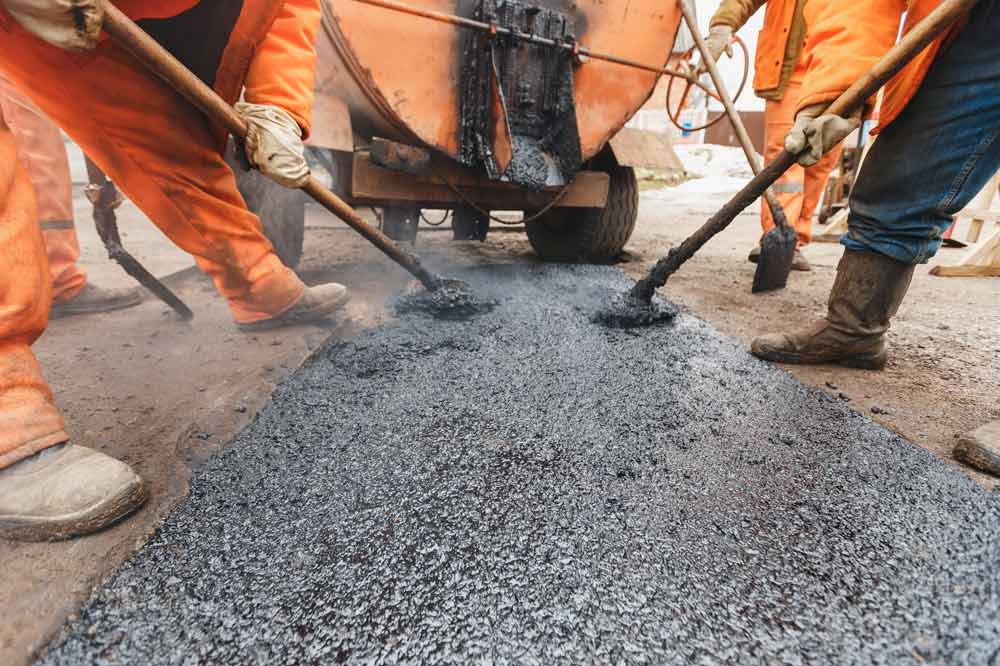Experienced Paving Experts for Even Surfaces
Experienced Paving Experts for Even Surfaces
Blog Article
Exploring the Numerous Kinds Of Asphalt Paving and Their Advantages
From the robust attributes of Hot Mix Asphalt to the environment-friendly characteristics of Recycled Asphalt Pavement, comprehending these choices can dramatically influence job results. Technologies such as Warm Mix Asphalt and Porous Asphalt introduce additional layers of performance and sustainability.
Warm Mix Asphalt
When taking into consideration one of the most effective leading solutions, hot mix asphalt (HMA) sticks out as a premier selection for numerous applications (paving service). HMA is a flexible paving material understood for its longevity, flexibility, and general performance. It is produced by heating asphalt binder and incorporating it with aggregates at high temperatures, making certain a consistent mixture that can hold up against numerous ecological problems
One of the main advantages of HMA is its capability to supply a smooth, skid-resistant surface area, boosting security for cars and pedestrians alike. In addition, HMA exhibits outstanding resistance to contortion, making it ideal for high-traffic areas such as freeways and parking area. Its versatility to different environments additionally contributes to its prevalent usage.
The installation procedure of HMA is relatively quick, permitting efficient project completion with marginal disturbance to traffic. Moreover, it can be reused, lowering waste and promoting sustainability within the construction industry. On the whole, warm mix asphalt remains a leading selection for paving specialists due to its robust efficiency features and long-term cost-effectiveness, making it a reliable option for numerous framework needs
Warm Mix Asphalt
Cozy mix asphalt (WMA) supplies an innovative choice to hot mix asphalt, supplying comparable advantages while calling for reduced manufacturing temperatures. Usually produced at temperatures between 190 ° F and 250 ° F, WMA technology decreases energy consumption and greenhouse gas exhausts during manufacturing, making it an extra eco-friendly option.
This adaptability can lead to improved compaction and overall durability of the asphalt surface area. In addition, WMA can be used in various applications, ranging from freeways to residential driveways, without endangering efficiency.

The consolidation of additives or customized binders in WMA adds to its enhanced residential or commercial properties, making sure that it satisfies or exceeds efficiency standards. Furthermore, WMA's decreased thermal influence during production can decrease the likelihood of damage to the surrounding environment, making it an enticing option for sustainable paving techniques.
Cold Mix Asphalt
Cold mix asphalt is a flexible paving remedy commonly used for momentary fixings and low-traffic areas. This kind of asphalt is generated at ambient temperatures, making it a hassle-free choice for fast fixes and tasks where typical hot mix asphalt may not be practical. The combination commonly includes asphalt binder, aggregate, and ingredients, permitting it to continue to be convenient for a prolonged duration.
Among the primary benefits of chilly mix asphalt is its ease of application. It can be set up without specific devices, making it accessible for smaller service providers and DIY enthusiasts. Additionally, cold mix can be used in different weather condition conditions, which is specifically advantageous for urgent repair work needs.

It may not supply the exact same long-term resilience as hot mix asphalt, its quick application and versatility make it an outstanding option for temporary remedies and low-traffic applications. Generally, chilly mix asphalt continues to be a practical alternative in the asphalt paving landscape.
(for more information)
Porous Asphalt
Permeable asphalt is an ingenious paving service developed to improve stormwater monitoring and reduce surface overflow. This sort of asphalt features an one-of-a-kind structure that incorporates interconnected spaces, enabling water to permeate through the surface area and right into the underlying layers. By assisting in all-natural drainage, permeable asphalt helps minimize the risk of flooding and reduces the concern on community stormwater systems.
Among the primary benefits of porous asphalt is its capability to boost water quality. As stormwater infiltrate the pavement, contaminants and sediments are caught, reducing the variety of contaminants that go into local waterways. This contributes to healthier environments and sustains compliance with environmental guidelines.
In addition, porous asphalt can enhance the longevity of the pavement itself. By reducing water accumulation externally, it decreases the possibility for freeze-thaw cycles that can result in splitting and wear and tear. In addition, the reduced demand for standard stormwater management facilities can lead to cost savings for districts and designers.
Recycled Asphalt Sidewalk
(full details)Recycled asphalt sidewalk (RAP) represents a sustainable method to roadway construction and upkeep that benefits both the setting and the economy. By recycling existing asphalt products, RAP reduces the need for brand-new resources, which subsequently preserves natural deposits and minimizes ecological influence. This practice decreases energy intake and greenhouse gas emissions connected with the production of new asphalt.
The consolidation of RAP right into brand-new sidewalk blends can additionally bring about significant cost savings. Professionals can utilize recycled products to minimize overall project expenditures, making it an economically viable choice for towns and private programmers alike. Furthermore, additional resources RAP provides similar efficiency features to virgin asphalt, making sure durability and long life in roadway surface areas.
RAP's convenience enables it to be made use of in different applications, including highways, parking area, and domestic driveways. By improving the architectural integrity of existing pavements, RAP contributes to improved safety and security and level of smoothness of highways.
Conclusion
Finally, the varied kinds of asphalt paving each offer distinctive benefits customized to certain needs. Hot Mix Asphalt stands out in longevity and rapid installation for high-traffic locations, while Warm Mix Asphalt enhances sustainability with decreased energy consumption. Cold Mix Asphalt works as an economical choice for urgent repair work, Porous Asphalt effectively manages stormwater, and Recycled Asphalt Pavement advertises environmental duty. Collectively, these leading solutions add to reliable, eco-friendly practices in the construction industry.
Report this page